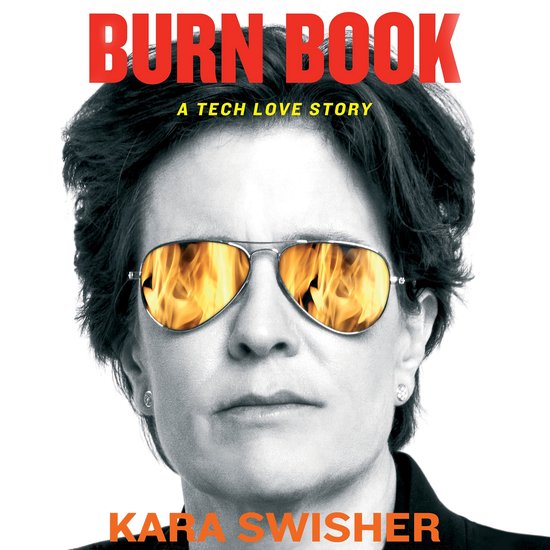In the world of technology commentary, few names are as revered—or feared—as Kara Swisher’s. Her brand new book Burn Book is a testament to her sharp wit and decades spent deep in the tech industry. However, like any significant piece, it is multifaceted, presenting a blend of commendable insight and areas ripe for critique. Coder Radio listeners won’t be shocked to hear that I have some thoughts on some of Kara’s more critical perspectives, but that doesn’t mean that Burn Book still isn’t a must-read and full of value for the audience it’s intended for.
1. A Silicon Valley Saga
Swisher’s book serves as an engaging overview of recent technological history, with a pronounced emphasis on Silicon Valley’s role in shaping our digital world. This focus is both its strength and its limitation. For those intrigued by the machinations of tech’s biggest hub, Swisher offers a veritable feast of anecdotes, character studies, and insider knowledge that illuminates the valley’s impact on global tech dynamics both for good and for ill. Yet, this concentration on a single region, albeit a crucial one, might leave readers craving perspectives on how other parts of the world are contributing to and contending with the tide of technological advancements. The narrative, rich in detail about Silicon Valley’s ecosystem, may inadvertently underrepresent the global scope of technology’s reach and influence.
2. Insightful, Yet Razor Sharp
Kara Swisher is unparalleled in her ability to cut through industry jargon and present insightful critiques of the tech world and in particular the shall we say personality quirks of its leaders. In particular she excels in highlighting the myriad issues stemming from social media companies. Her analysis is incisive, shedding light on the complex interplay between technological innovation and societal impact. Swisher’s adept identification of problems caused by tech giants—ranging from the clearly negative psychological impact social media is having on our young (teen girls in particular) to the erosion of civil discourse—demonstrates her deep understanding of the industry’s undercurrents. This aspect of the book is particularly valuable, offering readers a comprehensive look at the challenges we face in an increasingly digitized society. With that said, it’s a fair criticism of the work to point out that there’s some aspect of throwing the baby out with the bath water. It should also be noted that Swisher focuses on a very specific type of VC-funded hyped up tech company, but there’s tons of tech innovation outside the pages of say a TechCrunch and the very exclusive club of hot Valley startups.
3. Balancing Depth with Tone
While the book’s accessibility is one of its greatest assets, enabling a broad audience to engage with complex issues, there’s a palpable desire for a deeper, more technically nuanced exploration. Swisher’s prowess in navigating the tech landscape raises expectations for a more profound dissection of the topics at hand. Furthermore, the book’s tone occasionally veers towards what some might describe as “Mean Girls” territory; the title Burn Book might also be contributing to this some. This approach, while adding a layer of entertainment and perhaps serving to underscore the seriousness of the issues addressed, might not resonate with all readers, especially those who are aspiring technologists and entrepreneurs. Indeed, it occasionally detracts from the gravitas of Swisher’s arguments.
Kara Swisher’s burn book is a compelling, if at times snippy, dive into the heart of Silicon Valley and the broader tech industry. It marries critical insight with accessible prose, though not without sacrificing some depth and occasionally indulging in a tone that might not suit all tastes. Despite these criticisms, the book stands as a significant contribution to our understanding of the current tech landscape, offering invaluable perspectives on the challenges and opportunities that lie ahead. If you’ve enjoyed this post, please reach out to me on Twitter and LinkedIn. Also, if you have automation needs even if it’s a proprietary legacy system, Alice can help.







